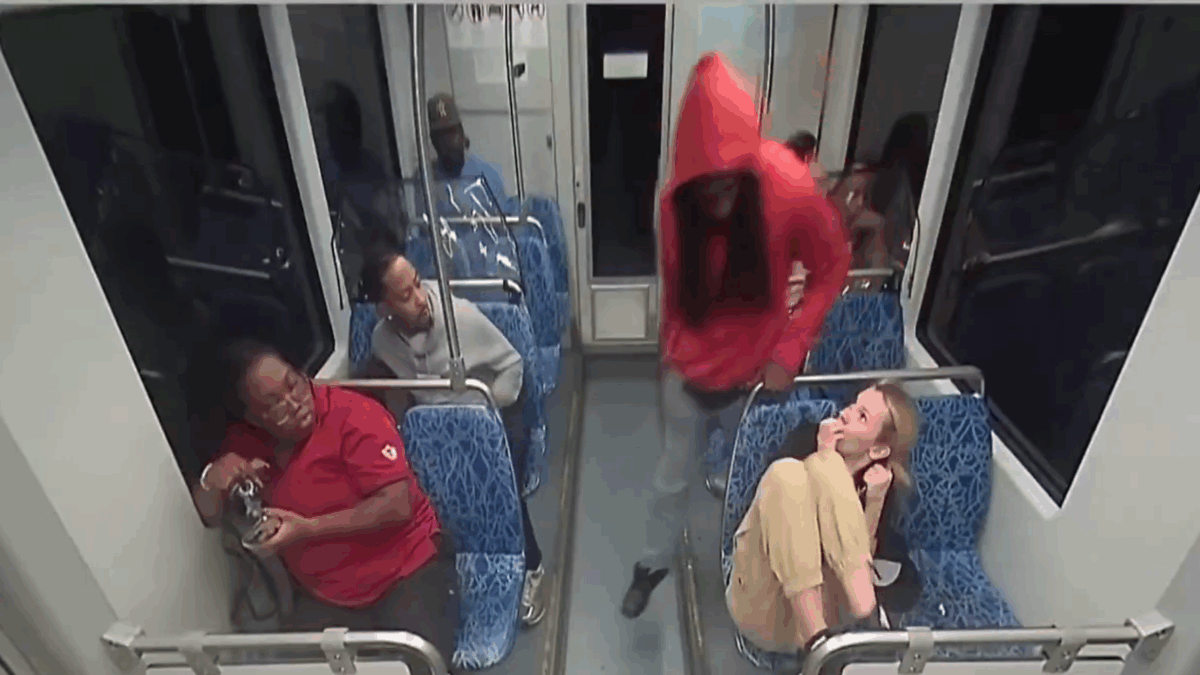Judge Who Freed Charlotte Stabbing Suspect Has Exactly The Credentials You’d Expect:
The Charlotte, North Carolina train stabbing that left 23-year old Ukrainian national Iryna Zarutska dead is now raising questions not just about the suspect, but about the judge who let him back on the streets months earlier.
Magistrate Judge Teresa Stokes released Decarlos Brown Jr. in January on his “written promise” that he would re-appear to court for a hearing on his Class 1 misdemeanor charge that “arose after Brown became combative with police officers,” according to a letter sent by ten U.S. representatives to North Carolina Chief Judge Roy H. Wiggins. Brown — a diagnosed schizophrenic — told officers that “man-made” materials were implanted inside of him and controlling him, according to The Washington Examiner. Officers reportedly told Brown he was experiencing a medical emergency and left, with Brown calling 911 again. He was charged with a Class 1 misdemeanor for abusing the emergency line.
That decision ignored Brown’s lengthy rap sheet: Brown had previously been convicted of with armed robbery, breaking and entering, shoplifting, and felony larceny, and had been arrested 14 times. Brown’s own mother also condemned the court system for releasing her son, who she said she kicked out of her home due to his aggression, according to Newsweek.
The U.S. representatives are asking that Stokes be removed from office “for willful and persistent failure to perform the duties of the office or conduct prejudicial to the administration of justice that brings the judicial office into disrepute.”
“Despite the history of violent and unstable behavior, Magistrate Stokes released Brown without requiring bond or imposing any meaningful conditions to safeguard the public,” the letter alleges. --->READ MORE HERE
We Need To Bring Back Mass Incarceration And Involuntary Commitment:
Senseless violence in our cities isn’t an unsolvable problem. Street psychotics like Decarlos Brown Jr. need to be locked away.
The brutal, unprovoked murder of 23-year-old Ukrainian refugee Iryna Zarutska by Decarlos Brown Jr. on a commuter train in Charlotte, North Carolina, should be a radicalizing moment for all law-abiding Americans who just want to live and work in peaceful, orderly cities.
Above all, it should rally public support for a crackdown on violent criminals and a return to mass incarceration and involuntary commitment in cities across the country.
We used to know how to deal with psychotic, violent criminals. They would either be incarcerated for a long period of time or involuntarily committed to long-term treatment in a state psychiatric hospital.
But for many years now, involuntary commitment and mass incarceration have been deemed “structurally racist” by leftists and useful idiots on the right. We were told we had to get rid of these problematic relics of the past, which didn’t work anyway. The BLM movement of 2020 and the false narrative around George Floyd’s death did much to bring about criminal justice “reforms” like cashless bail, decriminalizing homelessness, and emptying the jails in the name of racial equity. A cadre of Soros-funded district attorneys in major cities, along with radically left-wing municipal governments and mayors, were only too eager to make these changes. We were told these things were not just moral imperatives necessary to atone for racism but that they would make our streets safer.
What utter nonsense.
First, consider what has happened with involuntary commitment. It should be clear by now that shutting down state psychiatric hospitals and changing our laws about involuntary commitment was a huge mistake. Anyone who has spent time in a major American city over the past 20 years knows we have a huge problem with mentally ill, violent homeless people who cannot care for themselves and are a danger to public safety.
How did this problem get so bad? Because of misguided, reckless public policy. The shuttering of psychiatric facilities all over America in the 1980s and ‘90s was part of a long-term trend of deinstitutionalization that began in the 1950s and ‘60s. It was accelerated by the passage of Medicaid, allowing states to move psychiatric patients out of state-funded hospitals and into smaller, non-secure facilities and group homes, which federal Medicaid dollars would pay for.
Over time, the result was the near complete emptying out of our psychiatric hospitals. Currently, the population of involuntarily committed criminals is only 25,000 in the entire country. In the 1950s, the nation’s two largest psychiatric hospitals each had a census of more than 16,000 people. This trend toward de-institutionalization needs to be reversed. We need to rebuild the entire infrastructure of state-run psychiatric hospitals and revive laws that allow for the involuntarily commitment of violent, mentally unstable criminals.
As it stands, in most states it’s very difficult to involuntarily commit even violent criminals. Just this week, for example, a Colorado sheriff said he was forced to release a “very dangerous” inmate because of a new state law, passed last year, requiring the release of anyone found to be incompetent to stand trial. Weld County Sheriff Steve Reams warned residents on Monday that he had to release 21-year-old Debisa Ephraim, who was caught on video knocking out several men and then beating them in the face while they laid on the ground unconscious.
“He is a very dangerous person, and his actions, from what we can tell, were unprovoked,” said Reams. Ephraim had been jailed for the past five months facing charges including attempted second-degree murder, assault, and burglary. But the law, signed last year by Colorado Gov. Jared Polis, stipulates that those found incompetent to stand trial must get mental health treatment instead — contingent on them qualifying for treatment. Ephraim did not qualify, said Reams, and so was released per the new law. --->READ MORE HERE
If you like what you see, please "Like" and/or Follow us on FACEBOOK
here, GETTR
here, and TWITTER
here.



No comments:
Post a Comment